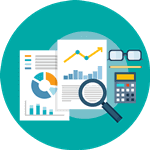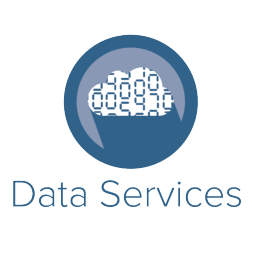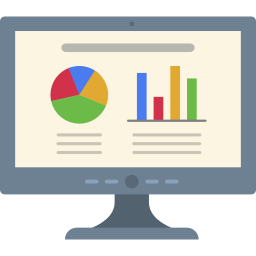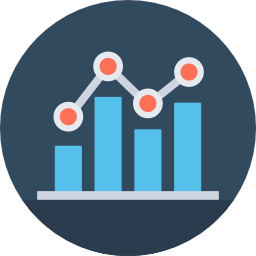 Data analysis is a critical component of research, providing scholars with insights and valuable information that can inform their decision-making. However, performing data analysis can be a challenging and time-consuming process, requiring specialized skills and tools that not all scholars possess. This is where our expert services come in. We will focus on the reasons why scholars seek data analysis help as well as explore the various benefits that we offer scholars in connection to the analysis of data, including the ability to handle large-scale data analysis projects, access to advanced technology and tools, improved data accuracy, better research and insights, cost savings, and customization. Outsourcing data analysis can lead to more accurate results, higher quality research, and a competitive advantage in their field. We mainly help with analysis data for research projects that involve GIS and statistical data.
Data analysis is a critical component of research, providing scholars with insights and valuable information that can inform their decision-making. However, performing data analysis can be a challenging and time-consuming process, requiring specialized skills and tools that not all scholars possess. This is where our expert services come in. We will focus on the reasons why scholars seek data analysis help as well as explore the various benefits that we offer scholars in connection to the analysis of data, including the ability to handle large-scale data analysis projects, access to advanced technology and tools, improved data accuracy, better research and insights, cost savings, and customization. Outsourcing data analysis can lead to more accurate results, higher quality research, and a competitive advantage in their field. We mainly help with analysis data for research projects that involve GIS and statistical data.
The main areas that our data assessment services cover:
- Data collection tools and instrumentation guide: We offer guidance on data collection for your project, where possible, and for secondary data, we support by downloading data from online sources, but for primary data, we only help develop data collection tools like questionnaires or interview scripts so that the customer can conduct surveys or collecting data manually and share back the data set.
- Data cleaning services: Once we have your data set, particularly primary data, we help to clean it. This process involves removing any errors, inconsistencies, and outliers from your dataset. For secondary data, this process is not that crucial.
- Best analysis support: After cleaning the data, we help with the analyzing process. We can use GIS software to map and visualize the data. We can also use statistical software to analyze the data, which will help you to identify patterns and relationships within the data. The software used depends on the data type and the analysis objective as well as customer preference.
- Interpretation of research findings and results: Once the analysis is done, we can help you to interpret the results. We will provide you with insights and recommendations based on your data analysis.
- Presentation of findings: The final step would be to present your findings in a clear and concise manner. We can help you to create charts, graphs, and other visual aids to make your presentation more engaging.
We can provide you with a comprehensive data analysis service that will help you to complete your school project or assignment successfully. Just let me know if you have any specific requirements or questions.
Reasons for Seeking Help from Proficient Data Analysts
- Lack of technical expertise in analyzing data: One of the primary reasons why scholars seek analysis help for their data is due to the lack of technical expertise. Data investigation requires specialized skills and knowledge of advanced software and tools. Many scholars do not have the resources or training to perform data analysis in-house. This is a common reason why scholars turn to our help in managing and analyzing their data.
- Need for specialized services: Sometimes scholars require specialized help that is beyond the capabilities of their in-house team. For example, they may need to analyze data from multiple sources, build predictive models, or perform complex statistical analyses. In such cases, we can provide the expertise and specialized tools required to deliver accurate results.
- Time constraints: Scholars often have to juggle multiple responsibilities, including research, writing, and teaching and the analysis of the data can be a time-consuming process, especially when working with large and complex data sets. Scholars may not have the time or resources to dedicate to data analysis while also managing their other responsibilities. Our data analysts help scholars save time by handling the entire data analysis process from start to finish, allowing them to focus on other important tasks.
- Our experts offer affordable services: Outsourcing data analysis to a service provider can be a cost-effective solution for scholars. Instead of investing in expensive software and hiring specialized staff, scholars can outsource their analysis needs to us. This can result in significant cost savings while still obtaining high-quality services.
- Better research and insights: One of the most significant benefits of data analysis is that it can provide scholars with valuable insights that they may not have otherwise discovered. By analyzing data from various sources, scholars can gain a better understanding of their research topic, uncover hidden patterns and trends, and make more informed decisions. This can help scholars produce higher-quality research and gain a competitive advantage.
- Improved data accuracy: Data analysis requires a high level of accuracy to produce meaningful results. However, errors in data collection, processing, or analysis can lead to inaccurate conclusions and faulty decision-making. Our service has the expertise and experience to ensure the accuracy of the data we analyze, leading to more reliable insights and decision-making.
- Access to advanced technology and tools: We have access to the latest technology and tools that can improve the accuracy and speed of data analysis. This includes software for data cleaning, machine learning algorithms, and data visualization tools. By outsourcing your needs to a service provider, you can leverage these advanced tools without having to invest in them themselves.
- Scalability: Scholars may also seek our assistance because they need to handle large-scale data analysis projects. Our experts can handle both small and large-scale analysis projects which ensures that scholars can continue to work with the same provider as their data evaluation needs change.
Scholars seek our help for various reasons, including the lack of technical expertise, the need for specialized services, time constraints, cost savings, better research and insights, improved data accuracy, access to advanced technology and tools, and scalability. Consulting our analysts can provide scholars with many benefits, including access to expertise, advanced technology, and specialized tools, cost savings, and improved accuracy and insights. With the help of our skilled data critique experts, scholars can make informed decisions, produce higher-quality research, and gain a competitive advantage in their field.
Data Analysis Support – Experienced Experts for Hire
 With the increasing availability of data, there is a growing need to extract valuable insights that can drive business decisions. By analyzing data, businesses and researchers can identify patterns, trends, and relationships that can help optimize business strategies and operations, improve customer engagement, and increase profitability. Our support involves using a range of tools and techniques to extract insights from data, including statistical analysis, machine learning, data visualization, data mining, and text analytics. These tools are designed to help analysts and business stakeholders interpret complex data sets and make informed decisions based on data-driven insights. To be effective in their roles, data analysts require a diverse set of skills, including strong analytical skills, technical proficiency in data analysis tools and techniques, communication skills, business acumen, and a natural curiosity to explore data sets and uncover hidden insights. Our support in relation to data inspection has become an indispensable function for businesses and individuals who need help with analyzing research data. With the right tools, techniques, and skills, businesses and researchers can harness the power of data to optimize their operations, improve customer engagement, and drive growth and profitability.
With the increasing availability of data, there is a growing need to extract valuable insights that can drive business decisions. By analyzing data, businesses and researchers can identify patterns, trends, and relationships that can help optimize business strategies and operations, improve customer engagement, and increase profitability. Our support involves using a range of tools and techniques to extract insights from data, including statistical analysis, machine learning, data visualization, data mining, and text analytics. These tools are designed to help analysts and business stakeholders interpret complex data sets and make informed decisions based on data-driven insights. To be effective in their roles, data analysts require a diverse set of skills, including strong analytical skills, technical proficiency in data analysis tools and techniques, communication skills, business acumen, and a natural curiosity to explore data sets and uncover hidden insights. Our support in relation to data inspection has become an indispensable function for businesses and individuals who need help with analyzing research data. With the right tools, techniques, and skills, businesses and researchers can harness the power of data to optimize their operations, improve customer engagement, and drive growth and profitability.
What are the main purposes of data analysis?
- Identify patterns and trends: Through data analysis, businesses and researchers can identify patterns and trends in data that may reveal insights into customer behavior, market trends, and business operations. This information can then be used to optimize business strategies, improve customer engagement, and increase profitability.
- Identify areas for improvement: By analyzing data on operational efficiency and resource allocation, businesses and researchers can pinpoint inefficiencies and take corrective action to improve performance and reduce costs. By getting data analysis support, you access help identifying areas where changes can be made to optimize business operations.
- Develop predictive models: Analyzed data can also be used to develop predictive models that help businesses anticipate future trends and patterns. By leveraging historical data and machine learning algorithms, businesses can develop models that forecast future customer behavior and market trends, enabling them to make informed decisions and stay ahead of the competition.
What skills do our data analysts possess?
- Analytical skills: Our data reviewers for hire have strong analytical skills to be able to identify patterns and trends in data sets and draw meaningful insights from them.
- Technical analysis skills: As experts, we are proficient in the tools and techniques used in data analysis, such as statistical analysis, machine learning, and data visualization.
- Great communication skills: Our experts are able to communicate their findings of the research data in a clear and concise manner, both expertly and in writing.
- Curious & Creative:Our data analysts are naturally curious and motivated to creatively explore data sets and uncover insights that may not be immediately apparent.
Factual analysis is a critical function for businesses seeking to gain a competitive edge in today's data-driven environment. Data computation serves several key purposes, including identifying patterns and trends, identifying areas for improvement, and developing predictive models. There are several tools and techniques used in analyzing project data, and our reliable data analysts have a diverse set of skills that make them effective in their roles.







 Statistical analysis services are becoming increasingly important in today's data-driven world. With the abundance of data available, researchers need to be able to extract valuable insights in order to make informed decisions. We will explore the steps involved in analyzing statistical data, the statistical methods used in data evaluation, and the time it takes to analyze data. Analysis is a crucial component of any business operation when it comes to data. It enables researchers to extract valuable insights from their data, identify patterns and trends, and make informed decisions based on evidence.
Statistical analysis services are becoming increasingly important in today's data-driven world. With the abundance of data available, researchers need to be able to extract valuable insights in order to make informed decisions. We will explore the steps involved in analyzing statistical data, the statistical methods used in data evaluation, and the time it takes to analyze data. Analysis is a crucial component of any business operation when it comes to data. It enables researchers to extract valuable insights from their data, identify patterns and trends, and make informed decisions based on evidence. 
